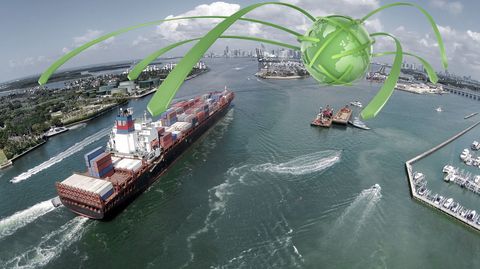With the British economy experiencing a period of relative stability and tentative growth in recent months, optimism is returning to the UK business community. However, many companies are still showing a reluctance to place a significant focus on international trade, due in part to wariness over the unpredictable conditions prevailing in many key markets.
Perhaps with this caution in mind, the UK government has unveiled a new cross-government initiative that aims to get the country's businesses investing in overseas trade once again, as well as implementing a system to give itself greater scope to oversee and coordinate export activities.
Unveiled last month by UK Trade & Investment (UKTI), the broad-ranging scheme is designed to make Britain the easiest country in the world with which to do business, delivering broad-ranging economic benefits.
Key measures
The overall aim of the new initiative will be to make it as simple as possible for UK businesses to start exporting, provide more financial support for companies involved in international trade, and implement digital technologies where possible to ensure the necessary infrastructure is fit for purpose in the 21st century.
Cross-government cooperation: UKTI will be seeking to locate sector experts in other mainstream government departments during the early part of this year to leverage specialist knowledge and existing relationships with business, while ensuring consistency in policy and operational delivery. This will, for example, result in the creation of a Great British Food Unit in collaboration with the Department for Environment, Food & Rural Affairs, with departmental ministers responsible for wider policies for their specific industry sector overseeing the delivery of sector-specific export plans.
A new UKTI headquarters: to coordinate this activity, UKTI will create a new strategic hub, allocating resources based on key priorities, and monitoring and evaluating progress against predetermined plans and roadmaps. Performance will be focused on measuring the volume and value of exports delivered.
Digital transformation: new technology and approaches will be harnessed where possible to meet the needs of businesses and increase cost efficiencies. For example, a single digital platform to help businesses find the export information, support and advice they need is set to be created, while the recently-launched five-year Exporting is GREAT marketing campaign also embodies this idea, having already generated more than 4,750 applications for export opportunities.
New practical and financial support measures: a suite of new practical and direct support products and services will be developed, taking inspiration from best practice and learning from competitor countries' export promotion agencies. These services and products will be piloted over the coming months.
New Trade Envoys appointed: the Trade Envoy programme involves the appointment of experts with experience, skills and knowledge in particular sectors or markets, who work closely with the government to promote the UK's excellence globally and champion trade and investment priorities. There are now 24 Trade Envoys covering 50 high-growth and emerging markets, with newly-appointed representatives put in place for countries such as Angola, Burma, Canada, Ghana, Iran, Nigeria, Malaysia, Taiwan and Uganda.
The expected benefits
This comes as part of wider government efforts led by UKTI to attract £1.5 trillion in foreign direct investment and establish Britain as a key hub for international trade.
Business secretary Sajid Javid said: "To improve the UK's export performance, we need to get the whole of government mobilised and working towards the same goal. By putting a refocused UKTI at the centre of a coordinated cross-government approach, relevant departments will share expertise to get UK businesses exporting."
Trade minister Lord Maude said: "We will coordinate the energies of the whole of government on boosting exports, sharing responsibility across departments, harnessing their deep sector knowledge, focusing on priority targets and monitoring progress closely. UKTI will be at the heart of this work, as well as retaining its remit to attract and support investment to the UK, but we are bringing together all of government to play a role."






